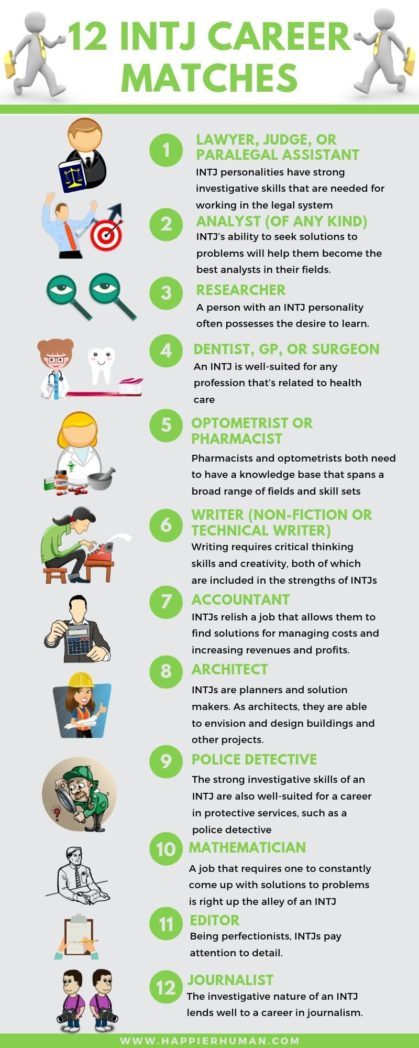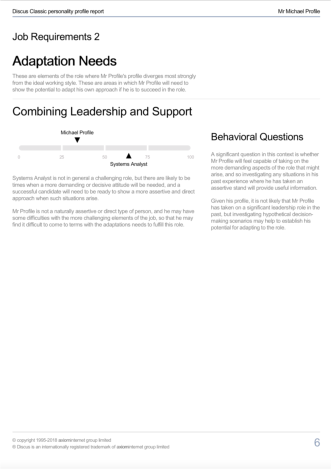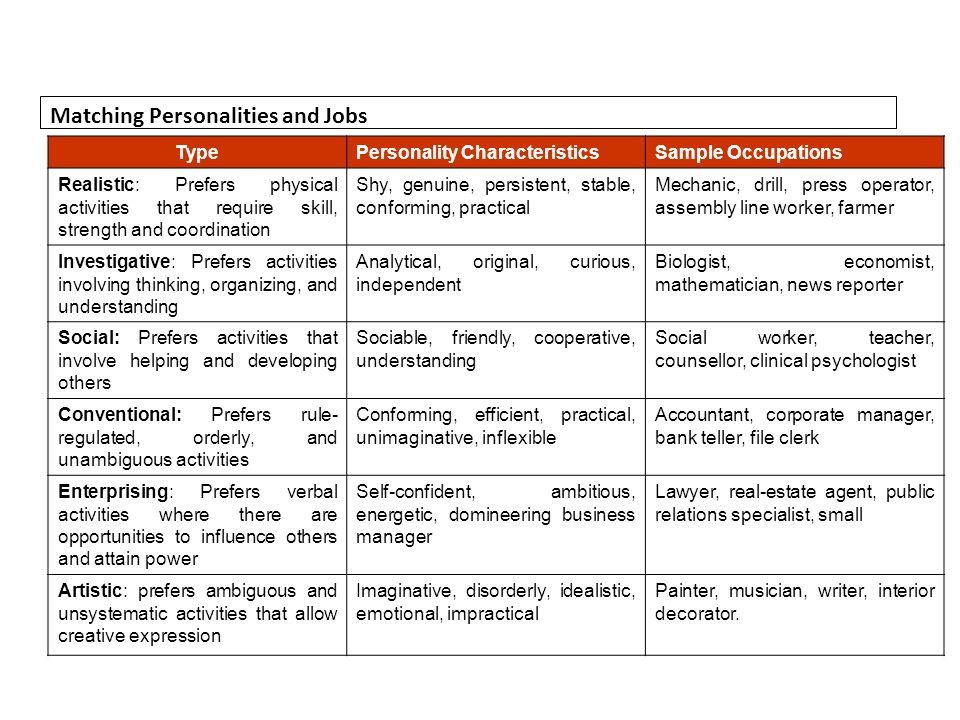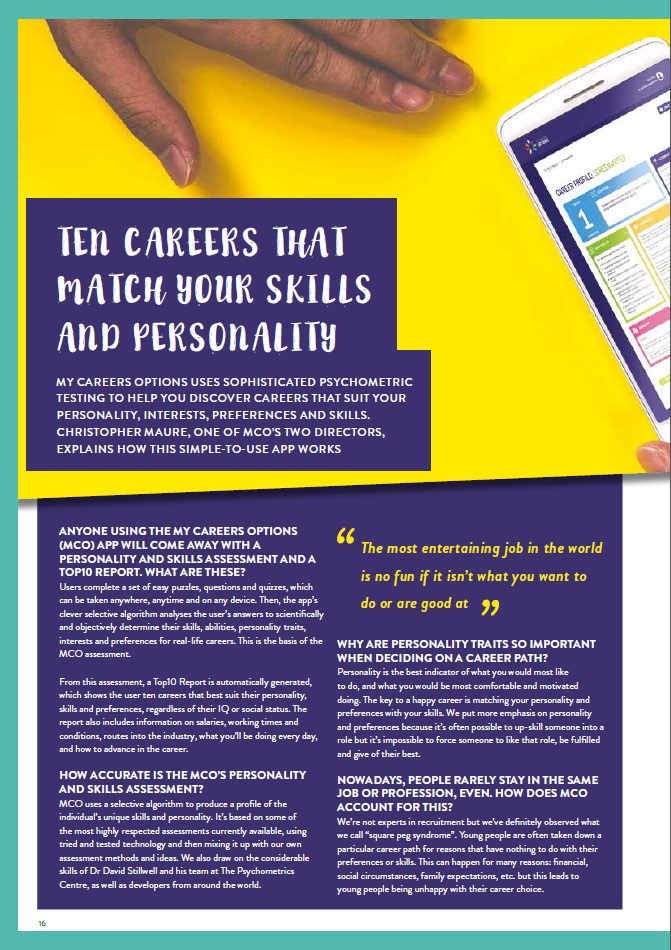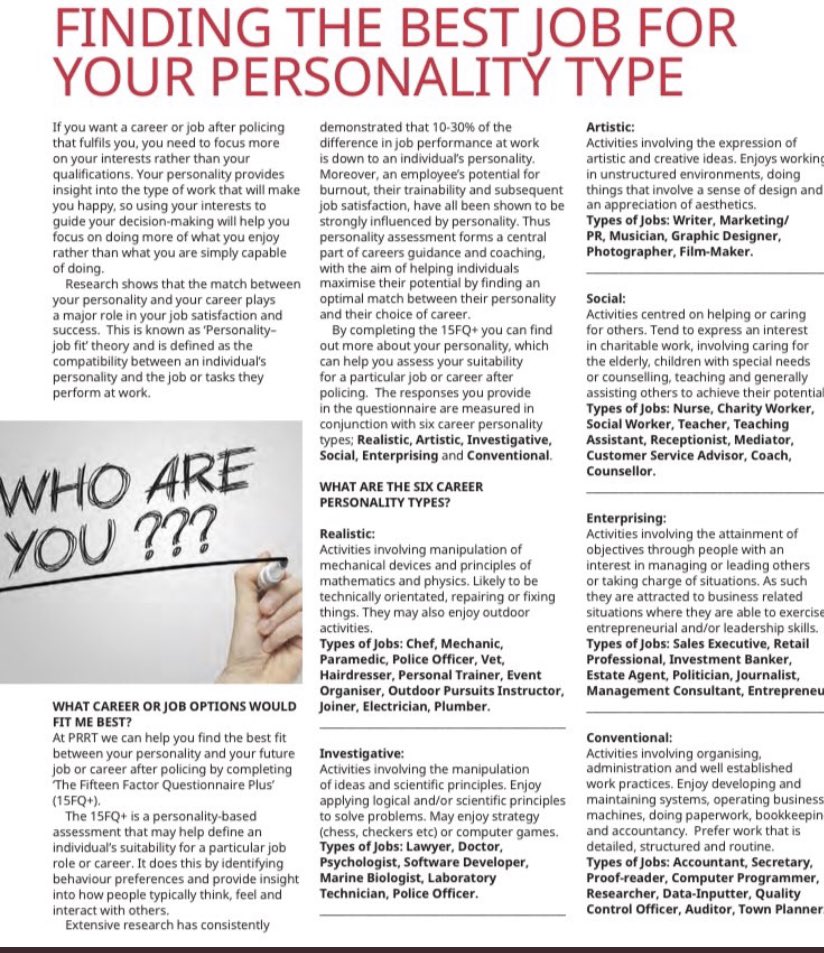Matching personality and job is an important aspect of career satisfaction and success. When a person's personality aligns with their job duties and work environment, they are more likely to be engaged in their work and motivated to perform at their best. On the other hand, when there is a mismatch between personality and job, it can lead to dissatisfaction, burnout, and ultimately, turnover.
There are many different personality traits that can be relevant to job fit, but some of the most commonly considered ones include conscientiousness, openness, agreeableness, neuroticism, and extraversion. Conscientious individuals tend to be organized, responsible, and dependable, and may be well-suited for jobs that require attention to detail and a high level of reliability. Open individuals are curious and open to new ideas and experiences, and may thrive in jobs that involve creativity and problem-solving. Agreeable individuals tend to be cooperative and likable, and may excel in jobs that involve teamwork and customer service. Neuroticism is a tendency to experience negative emotions such as anxiety and depression, and individuals who score high in neuroticism may struggle in jobs that involve high levels of stress or pressure. Extraverted individuals tend to be outgoing and sociable, and may be well-suited for jobs that involve frequent interactions with others.
There are several ways that individuals can assess their own personalities and explore potential job fits. One approach is to take a personality assessment, such as the Myers-Briggs Type Indicator (MBTI) or the Big Five Personality Test. These tests can provide insight into an individual's tendencies and preferences, and can be used to identify job roles that may be a good fit. Another approach is to consider interests and values. What are you naturally drawn to and enjoy doing? What is important to you in a job or work environment? Matching your interests and values to your job can increase job satisfaction and engagement.
It's also important to consider the culture of a potential employer and the work environment when determining if a job is a good fit for your personality. For example, if you are an introverted individual, you may not thrive in a highly social, fast-paced work environment. On the other hand, if you are an extraverted individual, you may struggle in a quiet, solitary work environment.
Ultimately, matching personality and job is a complex and multifaceted process. It requires self-reflection, exploration, and a willingness to try new things. However, making the effort to find a job that aligns with your personality can lead to increased job satisfaction, success, and overall well-being.
